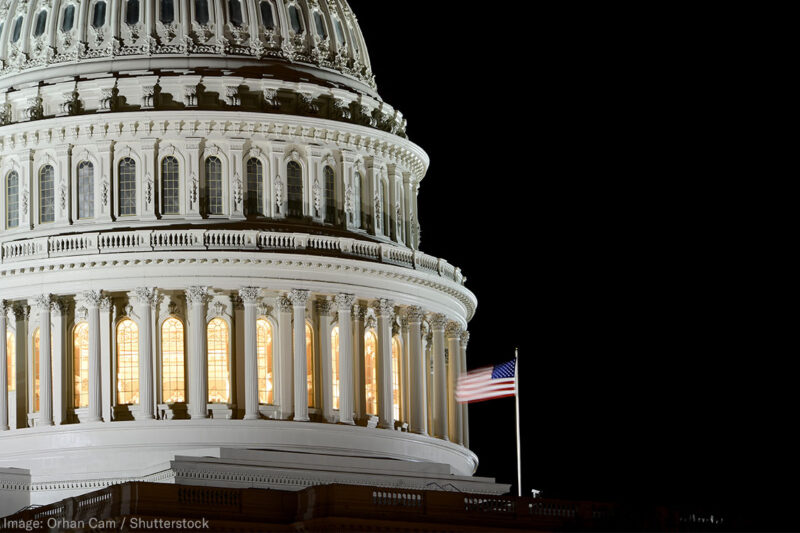
This piece was originally published by .
Lost in the shuffle of a tax bill and a rush to fund the government before Dec. 22, civil libertarians scored a major victory when House Republican leadership pulled the FISA Amendments Reauthorization Act. Instead, the House passed a short-term reauthorization of current law that extends it through Jan. 19.
We hope that House Republican leadership will use the additional time to allow a real debate on surveillance in the United States and consider other legislative proposals that protect Americans’ Fourth Amendment rights. They should abandon consideration of the FISA Amendments Reauthorization Act in the new year, which would simply continue the erosion of our liberties.
Proponents of the bill falsely claim it “reforms” Section 702 of the Foreign Intelligence Act — a controversial law used to spy on Americans. The reality is that it could be read as expanding authority under Section 702. It also risks codifying current illegal practices, and it does not adopt meaningful privacy protections that have been supported by a majority of House members.
This is what happens when there are secret negotiations about a law used in secret ways.
The amended version of the bill was posted less than 24 hours before it was originally scheduled for a vote in the House Rules Committee, meaning members would have had little time to read much less vet the complicated text. And, it did not reflect the bipartisan agreement (flawed as it is) that was passed out of the House Judiciary Committee, which has primary jurisdiction over this issue. This alone was enough to make members of Congress and the public balk.
Process aside, however, the bill itself is also deeply flawed.
This is the first time that Congress has had to consider a reauthorization of Section 702 since revelations in 2013 demonstrated how the law was being abused.
Since that time, we have learned that although the government claims that the law “targets” foreigners, it results in tens of millions of Americans’ emails, text messages, and other communications being collected. Some estimates indicate that half of all files collected under Section 702 contain information about a U.S. resident. (We only have outside estimates for now, since intelligence officials reversed a commitment to provide its estimate to Congress in advance of the reauthorization.)
We have also learned that government agencies like the FBI routinely and illegally search through Section 702 data without a warrant looking for information about Americans, exploiting what has been called the “backdoor search loophole.” This practice is in an end-run around the Fourth Amendment and provisions in Section 702 itself that are designed to ensure that the law it not used against Americans. The House has twice passed amendments to close this loophole by requiring the government to get a warrant before conducting such searches.
The bill does not remedy these problems. Instead, it makes them worse. The bill does nothing to close the backdoor search loophole and instead could be read as codifying the practice. The bill simply gives the government the option of getting a warrant prior to performing searches on the Section 702 database looking for information about an American. The bill purports to limit how this information can subsequently be used, but these limits are so broadly and poorly drafted that, in the majority of cases, they offer no meaningful restrictions.
Similarly, the bill places no limit on the warrantless collection of Americans’ communications. Instead it explicitly permits the government to resume its practice of collecting information that is neither to nor from a target, but merely “about” a target. In the past, the government has used this interpretation to allow the collection of wholly domestic communications. The legality of this practice has never been examined outside of the secret court that oversees surveillance under FISA, yet this bill would likely be read as congressional approval of this controversial practice.
Even more, the bill — potentially inadvertently — suggests that the government may be able to engage in even more expansive “about” collection that permits collection of communications that may only make a generic reference to a person. In the past, “about” collection involved acquiring communications that contained a specific “selector” associated with a target, such as an email or phone number.
Leadership unsuccessfully tried to jam this bill through Congress at the end last year in advance of the expiration, though intelligence officials indicated that they believe that they can continue surveillance under Section 702 until April 2018.
With enormous constitutional issues at stake, members of Congress should not simply accept this flawed legislation. Instead, they must oppose it and force leadership to take up real reform of the law before Jan. 19.

